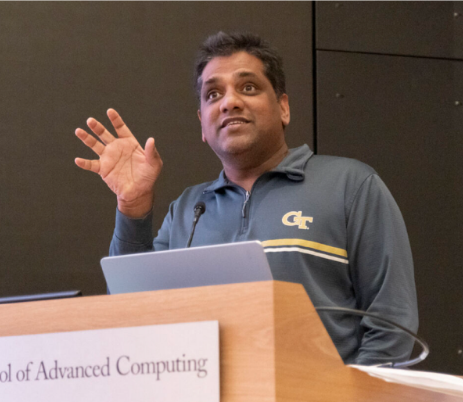Moving the Needle in Rowhammer Defense with a Minimalist Approach
Moinuddin Qureshi
Georgia Institute of Technology
 | The security vulnerabilities due to Rowhammer have worsened over the last decade, with existing in-DRAM solutions, such as TRR, getting broken with simple patterns. To securely mitigate Rowhammer, the DRAM industry is undergoing dramatic changes with some of the biggest changes to array and interface, to support JEDEC’s Per-Row Activation Counting (PRAC) and ALERT-Back-Off (ABO). In this talk, we will explore why early TRR implementations failed, how to design a secure and low-cost TRR tracker, and whether TRR has a future in modern DRAM products. We will also examine how to make PRAC-based designs both secure and high-performance. A recurring theme across these solutions is minimalism: we argue that advancing Rowhammer defenses requires adopting a security-first mindset—where simplicity is strength, and less is more. |
Bio: Moin Qureshi is a Professor of Computer Science at Georgia Tech. His research interests include memory systems, hardware security, and quantum computing. Prior to Georgia Tech, he was a research scientist at IBM T. J. Watson (2007-2011), where he developed caching algorithms for Power-7. Qureshi received the 2022 ACM SIGARCH Maurice Wilkes Award for “contributions to high-performance memory systems” and is a fellow of ACM and IEEE. His research has been recognized with several best-paper awards, three inclusions at the ISCA-50 retrospective, and several "impact" awards, including the most recent MICRO-2024 Test-of-Time Award and DSN-2025 Test-of-Time Award. Qureshi received the 2020 “Outstanding Researcher Award” from Intel and an “Outstanding Technical Achievement” award from IBM. More details at https://moin.cc.gatech.edu/.